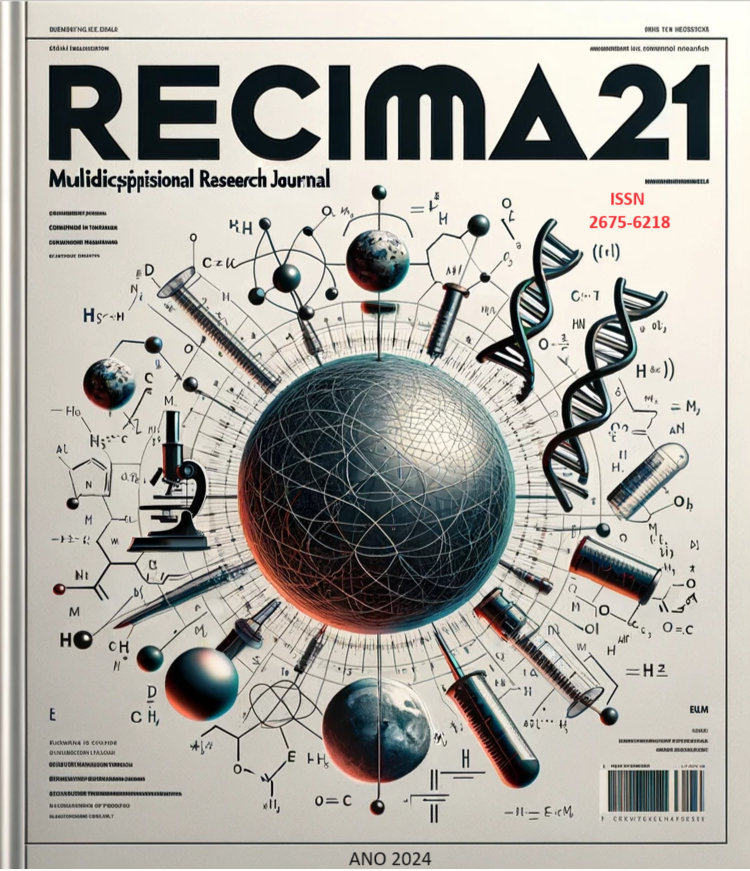AVALIAÇÃO FORMATIVA VS. AVALIAÇÃO SOMATIVA: NOVOS CAMINHOS PARA AVALIAR A APRENDIZAGEM E SUAS IMPLICAÇÕES NO DESENVOLVIMENTO DOS ESTUDANTES
DOI:
https://doi.org/10.47820/recima21.v5i10.5798Palavras-chave:
Avaliação Formativa, Avaliação Somativa, Desenvolvimento dos EstudantesResumo
Este artigo investiga as diferenças entre avaliação formativa e somativa, além de suas implicações no desenvolvimento dos estudantes. A avaliação somativa, amplamente utilizada em sistemas tradicionais de ensino, mede os resultados no final de um ciclo educacional, enquanto a avaliação formativa promove um acompanhamento contínuo da aprendizagem. Esta análise se justifica pela necessidade de compreender os impactos de cada abordagem e explorar novos caminhos que possam integrar ambas, contribuindo para uma avaliação mais justa e inclusiva. A pesquisa foi realizada em instituições de ensino que adotam ambas as formas de avaliação, por meio de entrevistas com professores. Os resultados indicam que a avaliação somativa é eficaz na medição de resultados, enquanto a formativa é mais adequada para monitorar o progresso e ajustar estratégias pedagógicas durante o processo de ensino. Conclui-se que a combinação dessas abordagens oferece uma alternativa robusta e equilibrada para otimizar o ensino-aprendizagem, promovendo um desenvolvimento mais completo dos estudantes. A partir dessa análise, novas perspectivas para a prática avaliativa são propostas, visando atender às demandas educacionais contemporâneas.
Downloads
Referências
ANDRADE, M. C. Metodologias de Avaliação da Aprendizagem: Aspectos Formativos e Somativos. São Paulo: Editora do Conhecimento, 2010.
BARDIN, L. Análise de Conteúdo. Lisboa: Edições 70, 2011.
BLACK, P.; WILIAM, D. Developing the theory of formative assessment. Educational Assessment, Evaluation and Accountability, v. 21, n. 1, p. 5-31, 2009. DOI: https://doi.org/10.1007/s11092-008-9068-5
BENNETT, R. E. Formative assessment: A critical review. Assessment in Education: Principles, Policy & Practice, v. 18, n. 1, p. 5-25, 2011. DOI: https://doi.org/10.1080/0969594X.2010.513678
FERNANDES, D. Avaliação das aprendizagens: Desafios às teorias, políticas e práticas. Porto: Porto Editora, 2018.
LUCKESI, C. C. Avaliação da Aprendizagem Escolar: Estudos e Proposições. São Paulo: Cortez, 2011.
NICOL, D. J.; MACFARLANE-DICK, D. Formative assessment and self-regulated learning. Studies in Higher Education, v. 31, n. 2, p. 199-218, 2006. DOI: https://doi.org/10.1080/03075070600572090
PERRENOUD, P. Avaliação: da excelência à regulação das aprendizagens. Porto Alegre: Artmed, 1999.
SADLER, D. R. Formative assessment and the design of instructional systems. Instructional Science, v. 18, p. 119-144, 1998. DOI: https://doi.org/10.1007/BF00117714
Downloads
Publicado
Licença
Copyright (c) 2024 RECIMA21 - Revista Científica Multidisciplinar - ISSN 2675-6218

Este trabalho está licenciado sob uma licença Creative Commons Attribution 4.0 International License.
Os direitos autorais dos artigos/resenhas/TCCs publicados pertecem à revista RECIMA21, e seguem o padrão Creative Commons (CC BY 4.0), permitindo a cópia ou reprodução, desde que cite a fonte e respeite os direitos dos autores e contenham menção aos mesmos nos créditos. Toda e qualquer obra publicada na revista, seu conteúdo é de responsabilidade dos autores, cabendo a RECIMA21 apenas ser o veículo de divulgação, seguindo os padrões nacionais e internacionais de publicação.













